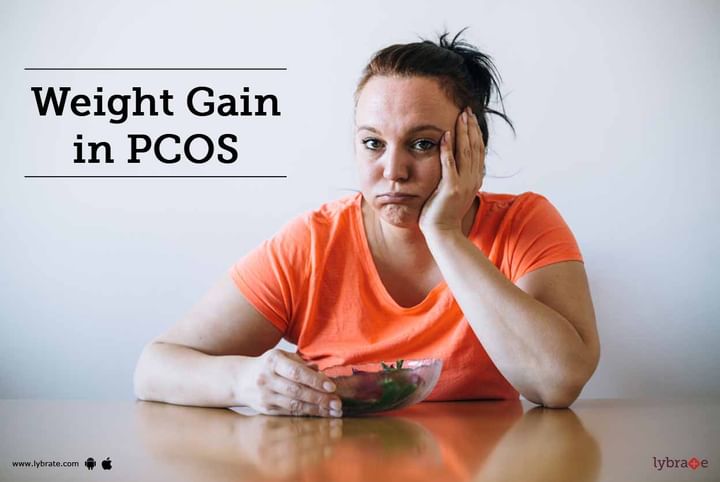Weight Gain in PCOS
Polycystic ovary syndrome (PCOS) is the most common hormonal disorder among women of reproductive age. Polycystic means “many cysts,” and PCOS often causes clusters of small, pearl-sized cysts in the ovaries. The cysts are fluid-filled and contain immature eggs. PCOS affects one in 4 women.
What are the causes behind it?
While the exact cause of PCOS is unknown, doctors believe that hormonal imbalances and genetics play a role. Women are more likely to develop PCOS if their mother or sister also has the condition.
Overproduction of the hormone androgen may be another contributing factor. Androgen is a male sex hormone that women’s bodies also produce.
PCOS Symptoms
PCOS is a syndrome disease defined by a collection of signs and symptoms. The symptoms of PCOS that one patient experiences can be very different from the symptoms of another patient. If you have two or more of the following symptoms, you need to have a thorough checkup to determine if you need PCOS treatment:
- Irregular or missing menstrual periods
- Infertility
- Excess or unwanted body or facial hair growth
- Thinning hair on the scalp
- Weight problems, often including weight gain around the waist
- Skin problems, including skin tags, darkening skin and acne
Does PCOS increase weight?
The answer is a ‘YES’. Most PCOS patients are overweight and are asked to exercise which helps control the symptoms but a lot many people have a completely normal body type.
What are the risks associated with PCOS-related weight gain?
No matter what the cause, weight gain can be detrimental to your health. Women with PCOS are more likely to develop many of the problems associated with weight gain and insulin resistance, including:
- Type 2 diabetes
- High cholesterol
- High blood pressure
- Sleep apnea
- Infertility
- Endometrial cancer
Many of these conditions can lead to heart disease. In fact, women with PCOS are four to seven times more likely to have a heart attack than women of the same age without the condition.
Benefit of Weight Loss with PCOS
Modest weight loss will not cure PCOS, but it will help. Weight loss can restore the normal function of the ovaries and result in normal hormone production. This may, in turn, lead to improvements in symptoms of PCOS, such as excess hair growth, acne or scalp hair loss.
Protect Yourself From Weight Gain
- Eat Right: A healthy diet low in complex carbohydrates, moderate protein and low fat is important, as this can help regulate blood sugar levels.
- Exercise: Start doing low-to-moderate activities like walking or swimming for 30-to-90 minutes per day because exercise (even without weight loss) has been shown to lower or get rid of insulin resistance.
- Lose Weight: The more overweight you are the more likely you are to be insulin resistant whether you have PCOS or not. Losing just 5% of your bodyweight will help lower your insulin resistance.
- Avoid Stress: Don’t over stress yourself as it increases the blood pressure level in your body and can’t help to resist with PCOS. So, try to stay as calm as possible.
- Get more sleep (at least 7-to-9 hours in a day): Not getting enough sleep can also make your insulin resistance worse, which in turn acquires you the weight.
DIET:
- Cereals: Barley, quinoa, oats, oatmeal, muesli, bran flakes, whole wheat porridge, brown rice, multigrain bread
- Pulses: Yellow moong, green moong, chana dal, beans, whole pulses
- Dairy products: Skimmed or toned milk, soy milk, tofu, paneer, yogurt
- Fruits: Berries, plums, peaches, oranges, papaya, pears, watermelons, apples
- Nuts: Walnut, almonds, flaxseeds
- Vegetables: Carrots, peas, broccoli, lettuce, mushrooms, tomatoes, peppers, onions, cauliflower, celery, spinach
If you wish to discuss about any specific problem, you can consult a dietitian-nutritionist.



+1.svg)
